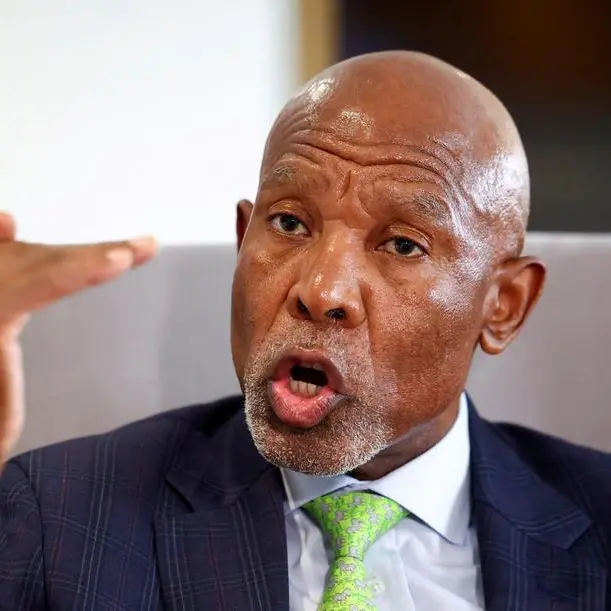PHOTO
Fitch Ratings-Hong Kong-December 12:
Fitch Ratings has downgraded Lebanon's Long-Term Foreign-Currency Issuer Default Rating (IDR) to 'CC' from 'CCC'.
Fitch typically does not assign Outlooks or apply +/- modifiers for sovereigns with a rating of 'CCC' or below.
Key Rating Drivers
The downgrade of Lebanon's ratings reflects Fitch's view that a government debt restructuring or default is probable owing to acute political uncertainty, de facto capital controls and damaged confidence in the banking sector that will deter capital inflows needed for Lebanon to meet its financing needs. The emergence of a parallel exchange rate and the failure of the central bank (Banque du Liban, BdL) to fully service its foreign currency obligations further reflect mounting financial pressure.
The BdL's gross foreign reserves provide a buffer for near-term external debt service obligations, but while capital controls will limit outflows, the absence of inflows implies an ongoing decline in FX reserves. US dollar rationing will likely deepen recession, increase inflation and stoke social unrest. These dynamics increasingly threaten the government's capacity and willingness to service its debt. An IMF deal would almost certainly require debt restructuring as the Fund would not be able to sign off on public debt being sustainable.
Ongoing political volatility is likely given the rupture between the current political class and the protesting public. The largest protests in more than a decade and the subsequent resignation of the prime minister, Saad Hariri, created renewed political paralysis. Large, persistent and nationwide protests erupted in mid-October, with protestors calling for an overhaul of the political system. Indications of recession, together with restricted access to bank deposits and goods shortages magnify the risk of further social unrest. Rationing of US dollars to prioritise repayment of government debt may become a more politically charged issue.
Talks are ongoing to choose a prime minister to form a cabinet with a mixture of political and technocratic appointees, following six weeks of failed negotiations. Protestors are likely to be sceptical of the new government unless it contains a large share of fresh faces and pledges a programme of political reform and change. Even then, reforms would be extremely challenging given the entrenched system of confessional governance, and because stabilising the economy would require consolidation measures to reduce large budget and current account deficits.
Eroding confidence in the banking sector, following intermittent bank closures and the emergence of de facto capital controls, has put a stop to deposit inflows, a key source of funding for Lebanon. A BdL circular on 4 December lowered interest rates on customer deposits at banks and mandated partial conversion into local currency of interest due on FX deposits at commercial banks and at BdL. This further reduces the likelihood of inflows.
We expect that BdL's gross FX reserves will decline to USD28 billion at end-2019, down USD4 billion in the year, and will continue to erode in 2020, given large external financing needs associated with USD2.5 billion of Eurobond maturities and a current account deficit that may narrow with import compression but remain large at USD8.5 billion-USD9.5 billion. BdL also holds around USD3.5 billion of other foreign assets and USD13.4 billion in gold, but cannot touch the gold without parliamentary approval. Non-resident foreign-currency deposits in the banking sector total USD32 billion, resident foreign currency deposits another USD91 billion. These deposits still represent an external vulnerability, even though capital controls are limiting outflows.
Furthermore, the central bank's foreign currency position is negative in net rather than gross terms, because it has large FX liabilities to Lebanese banks, which we estimate at USD67 billion in September, of which USD18 billion are mandatory reserve requirements. BdL's foreign assets (excluding gold) are largely liquid, while the FX liabilities to banks have longer average maturity. If BdL allowed banks easier access to their deposits in order for them to meet demands for FX from their depositors, then BdL's FX reserves would quickly diminish. Hence, banks resorted to capital controls and have been using their liquid foreign assets held abroad, which fell by USD3.6 billion in the year to October, when they totalled USD8.4 billion.
Rising dollarisation and the emergence of a parallel exchange rate point to widening cracks in the peg of the Lebanese pound to the US dollar, which has existed since 1997. Dollarisation reached 73.5% in October, up from 66.0% at the start of 2017. The Lebanese pound has been trading above 2,000 to the US dollar on the parallel market, compared with the official rate of 1,507.5 to the US dollar. The IMF argued in its latest report that the Lebanese pound is significantly overvalued.
On 4 December, the BdL announced that interest on its US dollar Certificate of Deposits would be paid 50% in US dollars and 50% in local currency. As such, it is failing to pay its obligations in full, underlining the intensification of financial pressure and providing a further adverse signal of the willingness and ability of the broader public sector to meets its obligations.
Although the government has an unblemished track record of debt repayment (the BdL, on behalf of the government, repaid a USD1.5 billion Eurobond on 28 November), its fiscal position looks increasingly unsustainable. We expect the economy to contract in 2019 and in 2020. We forecast a budget deficit of 9.3% of GDP in 2019 with a marginal primary surplus. However, we estimate that the government would need to run a primary surplus of around 5% of GDP over the next four years to stabilise government debt/GDP (even assuming no devaluation), which we estimate at 158% at end-2019.
A political resolution which starts to rebuild depositor confidence, combined with a credible economic and fiscal reform plan and substantial external financial support would ease financial pressure. But this scenario depends on a number of positive developments that are hard to assume as a baseline. Positive developments would need to be of sufficient magnitude to quickly restore confidence in the banking sector and the local currency and generate economic growth.
Lebanon has received repeated financial support from Gulf partners, but in recent years geopolitical considerations have weakened Gulf relations given the rising influence of Hizbollah as part of the government in Lebanon. Hizbollah is closely linked to Iran, whose regional rivalry with Saudi Arabia runs deep. Gulf countries and Gulf-linked multilaterals pledged USD3.5 billion as part of the USD11.0 billion of loans and grants pledged at the CEDRE conference organised by the International Support Group for Lebanon (ISGL) in April 2018. This has not been disbursed. There have been expressions of potential support from Saudi Arabia and the UAE earlier in 2019, but no tangible developments as yet.
None of the CEDRE funds have been disbursed, as Lebanon has not made the agreed reforms, and in any case are not intended for budget or balance of payment support, but rather for infrastructure projects spread over a number of years. On 11 December, an ISGL meeting in Paris reiterated support for Lebanon, provided a new government is formed that respects the demands of the protestors and implements reforms. Mr Hariri has requested a number of the countries involved for lines of credit for imports. The meeting is unlikely to result in immediate, large financial disbursements.
A potential agreement with the IMF could support Lebanon's financial position and mobilise other external financing, but this would almost certainly entail some restructuring of government debt. Lebanon would likely require exceptional access to IMF funds as the normal maximum of 435% of a country's quota over a three-year programme would be insufficient, amounting to USD3.9 billion.
The downgrade of the Country Ceiling to 'CCC' reflects the emergence of de facto capital controls, with tight restrictions on transfers abroad. The central bank has not imposed these capital controls, but banks introduced them, in particular to limit withdrawals in US dollars and transfers abroad. Fitch believes the current controls and risks of further tightening could potentially impair the private sector's ability to access foreign exchange to meet debt service.
Sovereign Rating Model (SRM) and Qualitative Overlay (QO)
In accordance with its rating criteria, for ratings in the 'CCC' range and below, Fitch's sovereign rating committee has not utilized the SRM and QO to explain the ratings, which are instead guided by the ratings definitions.
Fitch's SRM is the agency's proprietary multiple regression rating model that employs 18 variables based on three-year centred averages, including one year of forecasts, to produce a score equivalent to a LT FC IDR. Fitch's QO is a forward-looking qualitative framework designed to allow for adjustment to the SRM output to assign the final rating, reflecting factors within our criteria that are not fully quantifiable and/or not fully reflected in the SRM.
RATING SENSITIVITIES
The main factor that could lead to positive rating action is:
-Improved outlook for external financing, such as substantial inflows of external support that do not require debt restructuring or resurgence in non-resident deposit inflows into the banking system.
-Formulation of a credible fiscal and economic adjustment plan that avoids a debt restructuring.
The main factor that could lead to negative rating action is:
-Indications that a default or debt restructuring is imminent, for example the announcement by the government of a debt restructuring plan.
Key Assumptions
We assume that Lebanon does not receive large-scale upfront budget and balance of payments financing from Gulf or other partners.
ESG Considerations
Lebanon has an ESG Relevance Score of 5 for Political Stability and Rights as World Bank Governance Indicators have the highest weight in Fitch's SRM and is therefore highly relevant to the rating and a key rating driver with a high weight.
Lebanon has an ESG Relevance Score of 5 for Rule of Law, Institutional Regulatory Quality and Control of Corruption as World Bank Governance Indicators (for which Lebanon scores well below peers) have the highest weight in Fitch's SRM and is therefore highly relevant to the rating and a key rating driver with a high weight.
Lebanon has an ESG Relevance Score of 4 for human rights and political freedoms as scores for the Voice and Accountability pillar of the World Bank Governance Indicators are relevant to the rating and a rating driver.
Lebanon has an ESG Relevance Score of 4 for Creditors' Rights as willingness to service and repay debt is relevant to the rating and a rating driver, as it is for all sovereigns.
Lebanon; Long Term Issuer Default Rating; Downgrade; CC
----; Short Term Issuer Default Rating; Affirmed; C
----; Local Currency Long Term Issuer Default Rating; Downgrade; CC
----; Local Currency Short Term Issuer Default Rating; Affirmed; C
----; Country Ceiling; Downgrade; CCC
----senior unsecured; Long Term Rating; Downgrade; CC
Contacts:
Primary Rating Analyst
Toby Iles,
Director
+852 2263 9832
Fitch (Hong Kong) Limited
19/F Man Yee Building 60-68 Des Voeux Road Central
Hong Kong
Secondary Rating Analyst
Jan Friederich,
Senior Director
+852 2263 9910
Committee Chairperson
Michele Napolitano,
Senior Director
+44 20 3530 1882
Media Relations: Peter Fitzpatrick, London, Tel: +44 20 3530 1103, Email: peter.fitzpatrick@thefitchgroup.com; Wai Lun Wan, Hong Kong, Tel: +852 2263 9935, Email: wailun.wan@thefitchgroup.com.
Additional information is available on
Applicable Criteria
Country Ceilings Criteria (pub. 05 Jul 2019)
Sovereign Rating Criteria (pub. 26 May 2019)
Additional Disclosures
Dodd-Frank Rating Information Disclosure Form
Solicitation Status
Endorsement Policy
ALL FITCH CREDIT RATINGS ARE SUBJECT TO CERTAIN LIMITATIONS AND DISCLAIMERS. PLEASE READ THESE LIMITATIONS AND DISCLAIMERS BY FOLLOWING THIS LINK:
Copyright 2019 by Fitch Ratings, Inc., Fitch Ratings Ltd. and its subsidiaries. 33 Whitehall Street, NY, NY 10004. Telephone: 1-800-753-4824, (212) 908-0500. Fax: (212) 480-4435. Reproduction or retransmission in whole or in part is prohibited except by permission. All rights reserved. In issuing and maintaining its ratings and in making other reports (including forecast information), Fitch relies on factual information it receives from issuers and underwriters and from other sources Fitch believes to be credible. Fitch conducts a reasonable investigation of the factual information relied upon by it in accordance with its ratings methodology, and obtains reasonable verification of that information from independent sources, to the extent such sources are available for a given security or in a given jurisdiction. The manner of Fitch's factual investigation and the scope of the third-party verification it obtains will vary depending on the nature of the rated security and its issuer, the requirements and practices in the jurisdiction in which the rated security is offered and sold and/or the issuer is located, the availability and nature of relevant public information, access to the management of the issuer and its advisers, the availability of pre-existing third-party verifications such as audit reports, agreed-upon procedures letters, appraisals, actuarial reports, engineering reports, legal opinions and other reports provided by third parties, the availability of independent and competent third- party verification sources with respect to the particular security or in the particular jurisdiction of the issuer, and a variety of other factors. Users of Fitch's ratings and reports should understand that neither an enhanced factual investigation nor any third-party verification can ensure that all of the information Fitch relies on in connection with a rating or a report will be accurate and complete. Ultimately, the issuer and its advisers are responsible for the accuracy of the information they provide to Fitch and to the market in offering documents and other reports. In issuing its ratings and its reports, Fitch must rely on the work of experts, including independent auditors with respect to financial statements and attorneys with respect to legal and tax matters. Further, ratings and forecasts of financial and other information are inherently forward-looking and embody assumptions and predictions about future events that by their nature cannot be verified as facts. As a result, despite any verification of current facts, ratings and forecasts can be affected by future events or conditions that were not anticipated at the time a rating or forecast was issued or affirmed.
The information in this report is provided "as is" without any representation or warranty of any kind, and Fitch does not represent or warrant that the report or any of its contents will meet any of the requirements of a recipient of the report. A Fitch rating is an opinion as to the creditworthiness of a security. This opinion and reports made by Fitch are based on established criteria and methodologies that Fitch is continuously evaluating and updating. Therefore, ratings and reports are the collective work product of Fitch and no individual, or group of individuals, is solely responsible for a rating or a report. The rating does not address the risk of loss due to risks other than credit risk, unless such risk is specifically mentioned. Fitch is not engaged in the offer or sale of any security. All Fitch reports have shared authorship. Individuals identified in a Fitch report were involved in, but are not solely responsible for, the opinions stated therein. The individuals are named for contact purposes only. A report providing a Fitch rating is neither a prospectus nor a substitute for the information assembled, verified and presented to investors by the issuer and its agents in connection with the sale of the securities. Ratings may be changed or withdrawn at any time for any reason in the sole discretion of Fitch. Fitch does not provide investment advice of any sort. Ratings are not a recommendation to buy, sell, or hold any security. Ratings do not comment on the adequacy of market price, the suitability of any security for a particular investor, or the tax-exempt nature or taxability of payments made in respect to any security. Fitch receives fees from issuers, insurers, guarantors, other obligors, and underwriters for rating securities. Such fees generally vary from US$1,000 to US$750,000 (or the applicable currency equivalent) per issue. In certain cases, Fitch will rate all or a number of issues issued by a particular issuer, or insured or guaranteed by a particular insurer or guarantor, for a single annual fee. Such fees are expected to vary from US$10,000 to US$1,500,000 (or the applicable currency equivalent). The assignment, publication, or dissemination of a rating by Fitch shall not constitute a consent by Fitch to use its name as an expert in connection with any registration statement filed under the United States securities laws, the Financial Services and Markets Act of 2000 of the United Kingdom, or the securities laws of any particular jurisdiction. Due to the relative efficiency of electronic publishing and distribution, Fitch research may be available to electronic subscribers up to three days earlier than to print subscribers.
For Australia, New Zealand, Taiwan and South Korea only: Fitch Australia Pty Ltd holds an Australian financial services license (AFS license no. 337123) which authorizes it to provide credit ratings to wholesale clients only. Credit ratings information published by Fitch is not intended to be used by persons who are retail clients within the meaning of the Corporations Act 2001
Fitch Ratings, Inc. is registered with the U.S. Securities and Exchange Commission as a Nationally Recognized Statistical Rating Organization (the "NRSRO"). While certain of the NRSRO's credit rating subsidiaries are listed on Item 3 of Form NRSRO and as such are authorized to issue credit ratings on behalf of the NRSRO (see





















